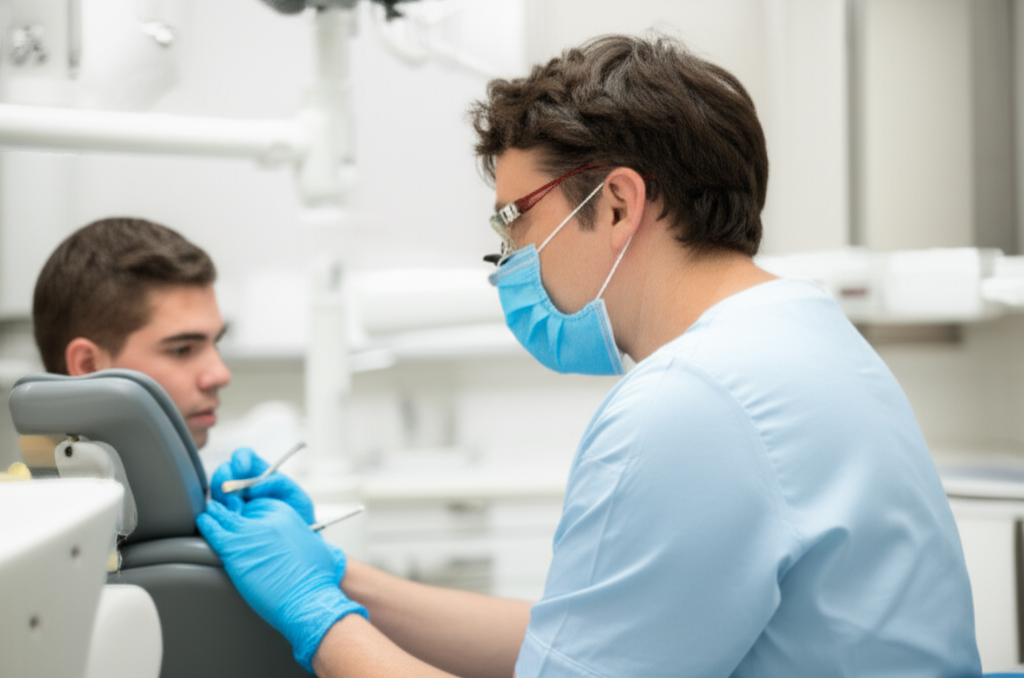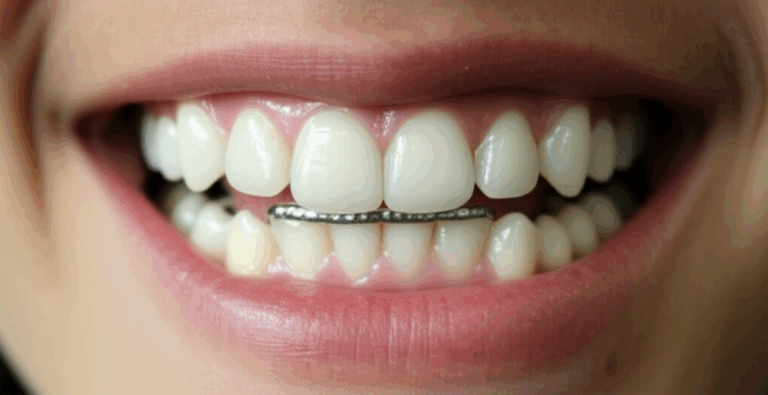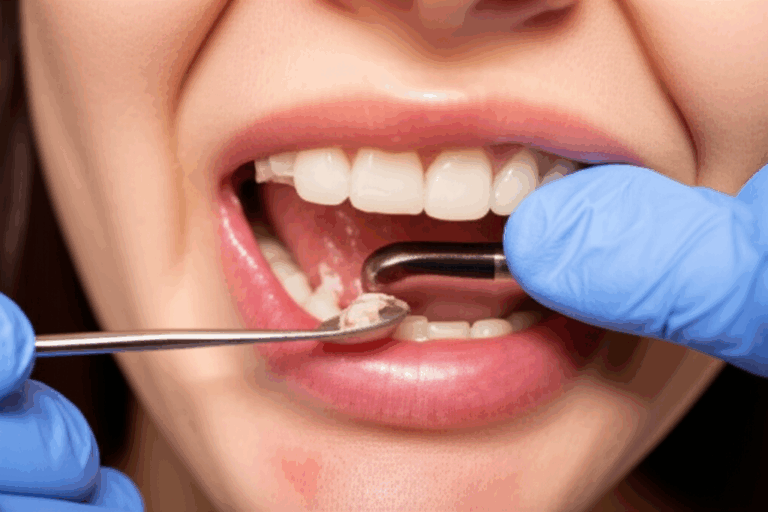
Can a Dental Hygienist Become a Dentist? Your Simple Step-by-Step Guide
Thinking about moving forward in dentistry? This article breaks down—step by step—how a dental hygienist can become a dentist. You’ll see what you need, why it matters, the good parts, and what’s hard about it. Wondering if it’s possible and if you should really do it? Let’s walk through it together so you can decide what’s best for you.
Table of Contents
Why Think About Becoming a Dentist?
Sometimes, you wonder if you can do more with your job. Maybe you’re a dental hygienist who already likes helping people, but you want a bigger part—more responsibility, more things to learn, and a chance to be in charge. You’re not alone! Lots of hygienists want to grow in their job because:
- Helping people in new ways: Dentists can figure out what’s wrong, fix teeth, and even open their own office. You get to decide how you treat people.
- Earning more money: Just look at the table below. Dentists make a lot more than hygienists.
- Being a leader: Want your own office or want to be the boss? Dentists can do that.
But before you jump in, you need to know if it’s really doable, and what it takes.
Can a Hygienist Become a Dentist?
Short answer? Yes, you can! Lots of dental hygienists have already become dentists. Dental schools don’t just let in the “usual” students. They like when someone already knows about taking care of patients, science, and working with their hands.
This article is worth reading because it’s not just about changing jobs. It’s about new chances. I’ll show you the real steps one by one. You’ll see why your time as a hygienist helps, what the rules are, what hard things might come up, and how you can get through the tough parts.
What Steps Do I Need to Take?
Step 1: Look at Your Schooling
Most hygienists have either a two-year or a four-year degree in dental hygiene. To get into dental school, you need a bachelor’s degree or at least about three years in college with the right science classes.
- Biology
- Chemistry
- Organic Chemistry
- Physics
If you don’t have all the right classes, don’t worry! You can take post-bachelor programs to catch up.
Step 2: Take the DAT (Dental Admission Test)
This is a big test on basic science and thinking fast. There are questions about biology, chemistry, reading, math, and more.
Tip: Study a lot. Most people who get into school score between 19 and 21.
Step 3: Get Your Application Ready
You’ll use the AADSAS website—the main dental application. This part asks for:
- Personal statement: Tell your story and why your hygienist job made you want to be a dentist.
- Letters of recommendation: Ask dentists, teachers, or your boss to talk about how good you are.
- Shadowing and helping out: Even if you already work with patients, more time spent watching dentists just for this shows you care.
Step 4: Dental School
Get ready for four more years of school. You’ll do classes, labs, and treat real patients—working on things like fillings, crowns, and dentures.
Good to know: Being a hygienist helps you a lot here because you already know what it’s like with patients!
Step 5: Get Your License
After finishing school, you have to pass big tests before you can call yourself a dentist. Some dentists go on to learn special jobs, but that’s up to you.
Do I Meet the Dental School Requirements?
Here are the big rules:
- Bachelor’s Degree: Most schools want this, but some take three years of college.
- Right Science Classes: Did you do all the main science classes?
- Grades: Most schools want all your grades and your science grades to be above 3.5 out of 4.
- DAT Score: Try to get 19–21 or higher.
- Shadowing and Helping: Even though you worked as a hygienist, schools still want to see you did this recently.
- Nice Application: Write a strong story about why you want this, and get good reference letters.
If you don’t have everything, don’t quit! Lots of hygienists take classes or join special programs to get ready.
How Long Will It Take?
This is not quick. Here’s the breakdown:
| Step/Phase | Years Typical |
|---|---|
| Hygienist School | 2–4 |
| More College Classes (if any) | 1 |
| Dental School | 4 |
| Learning Special Jobs (optional) | 1–3 |
All together: Most people spend about 6–8 years (counting time as a hygienist and extra classes).
It seems long, but this is for a job you’ll do for a long time!
Is Dental School Hard for a Hygienist?
No sugar-coating it—Dental school is hard. The classes are tough, and you’ll study stuff like anatomy, germs, clinic lessons, and dental tools. You might feel you’re older than others or that the science is hard.
But here’s the good news: Hygienists often do well. Why? You already:
- Know how to help patients and what a dental office is like.
- Know how to use dental tools, work on teeth, and talk to patients.
If you keep reading, ask for help, and use what you know already, you can do this!
How Much Will It Cost?
Here’s the money talk. Dental school is pricey, but so are most good things.
Money Chart:
| Category | Hygienist | Dentist (General) |
|---|---|---|
| Median Salary | $87,530 | $163,920 |
| School Cost/year | $4,000 | $40,000–$100,000 |
| Loans Owed | $20,000–$40,000 | $300,000–$400,000 |
| Years of School | 2–4 | 4 (after college) |
Problem: That’s a huge bill.
Worry: Owing hundreds of thousands is scary. Plus, you’ll have rent, books, and basic bills while you aren’t working as much.
What to Do: Plan ahead. Lots of students get scholarships, money help, or part-time work. And dentists make more money after graduating, so paying back loans is possible.
What Are the Benefits of Making the Change?
More choices. More money. More impact.
Here’s a quick list of good things:
- Bigger job: Dentists can do fillings, root canals, crowns, and more. You’re the boss in the clinic.
- More pay: Dentists earn over twice as much as hygienists.
- Own your practice: Want your own place? As a dentist, you can have one.
- Special jobs: Dream of being an orthodontist or surgeon? You can.
- Help more: You get to fix tougher problems and help people even more.
Your hygiene work gives you a big advantage. You’ll know how a clinic runs, and you can connect better with patients and staff.
If you want to see how dental labs help dentists with things like crowns or dentures, check out this digital dental lab page.
What Obstacles Might I Face?
Changing your job isn’t easy. You might have:
- A lot of work: Dental school is busy, and tests are hard.
- Money stress: Some students get nervous about living cheap and paying for everything.
- Time away from home and work: Balancing kids, work, and reading can be tough.
- Student life again: Leaving a steady paycheck, even just for a few years, is a lot.
Worry: It’s easy to get tired and think, “Can I really do this?”
Stress: Your friends might be buying houses or going on trips while you’re studying. You might feel left behind.
What to Do: Remember why you started. Ask for help—schools, friends, and groups want you to win. Reach out to hygienists and dentists for tips. Remind yourself that a few hard years bring good things for life.
For more info about oral health and why it matters, check out this dental care guide.
Is It Worth It in the End?
Let’s be honest. Becoming a dentist isn’t for everyone. It takes a lot of time, money, and hard work. But for most hygienists who go for it, they’re glad they did. Here’s why:
- Job security is strong. More and more people are needing dentists.
- Dentists get paid well. The average is about $163,920 a year, sometimes more.
- More freedom. You can open your practice if you want.
- Feels good. Dentists like knowing they make people’s lives better.
If you want some inspiration about new tech in dentistry, here’s a page on 3d dental lab.
FAQ
Q: Will dental schools care about my time as a dental hygienist?
A: Yes! Many schools like that you’ve worked with patients and know how to help people.
Q: Can I use my hygiene college credits for dental school?
A: Some schools count science classes from before, but most dental school work is all new.
Q: How do I pick the right dental school?
A: Look for schools that are approved and have good reviews. Some schools even have “bridge programs” made for hygienists.
Q: Is there an age limit?
A: No. People go to dental school at all different ages.
Key Takeaways
- A dental hygienist really can become a dentist. It’s a real, good path.
- You’ll need a bachelor’s degree, science classes, and a good DAT score to apply.
- Dental school is around 4 years, plus any extra classes you need before.
- It’s not cheap, but the pay and the good things can be big.
- Your background as a hygienist gives you real skills that others may not have.
- Stay focused, get help, and plan your money—and you can make this switch.
- For more info, check out topics like digital dental lab or dental care.
If you want more from your life in dentistry, go ahead and try. Your future self and your patients will be glad you did.








